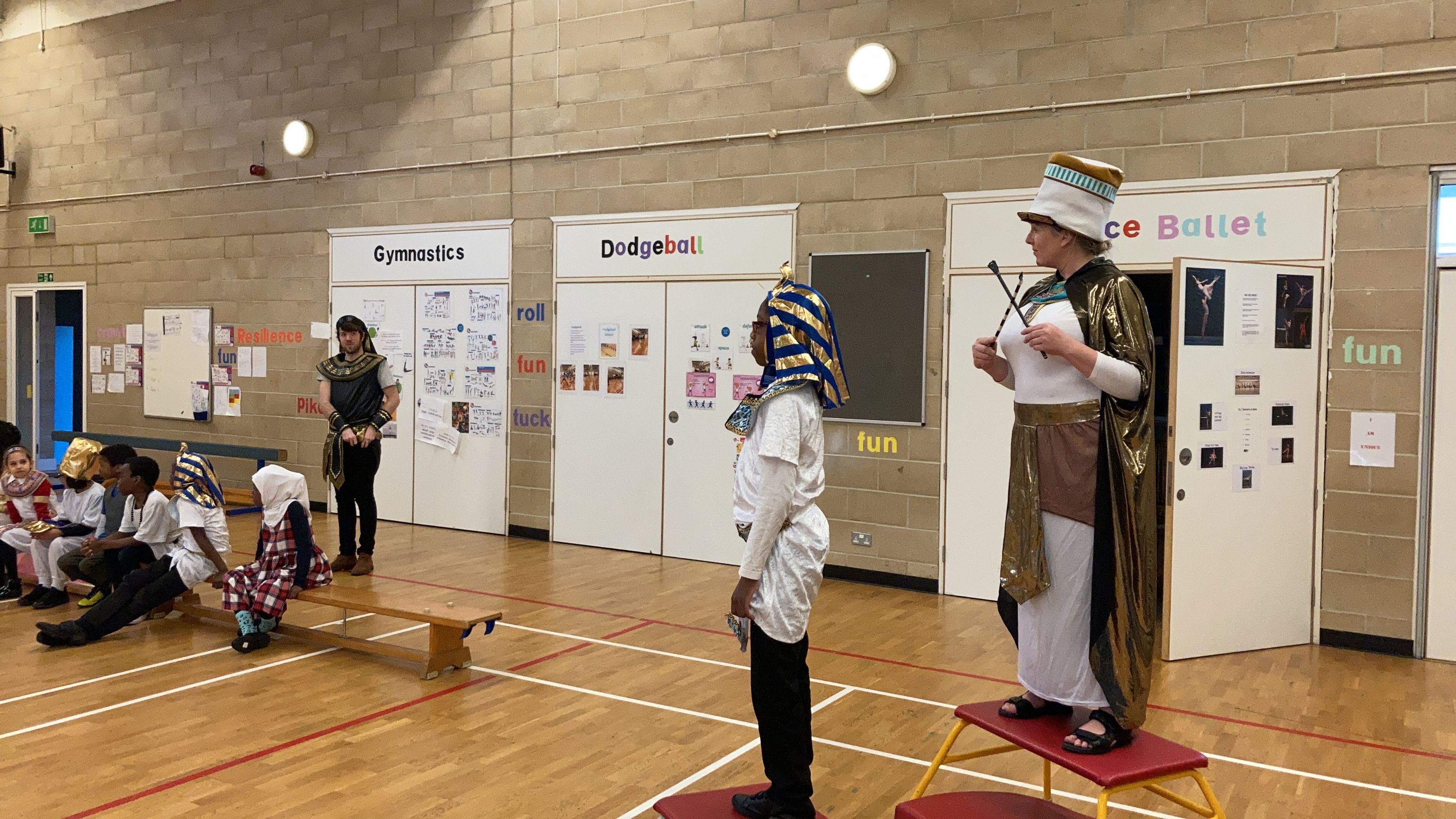History curriculum statement
INTENT
- Our history curriculum encourages our pupils to develop an appreciation and understanding of the past.
- Our history curriculum equips children with understanding of Britain’s past and that of the wider world.
- Our history curriculum is broad and balanced. It is taught as a discrete subject as we believe this approach immerses our children within history, encourages them to use historical vocabulary and begin to explore and reflect on the past and make meaningful links to the present day as an historian.
- Where meaningful, our history curriculum has links with other subjects so that our children broaden their understanding and apply their learning to different contexts (for example, Year Three pupils explore the Big Question: ‘Who killed Tutankhamen?’ by reading, retrieving and collating information and identifying evidence in the text to support their theories about a significant historical discovery).
- As children’s reading and writing skills are essential in becoming life-long learners, we incorporate purposeful reading within our history curriculum.
- Our history curriculum is coherently planned and sequenced for all our children.
- Our history curriculum is ambitious for all our children, including those with SEND, enabling every child to work to their full potential.
- In keeping with our Christian ethos, each history unit of work is introduced through discussion and debate around ‘big questions’ that explore God’s people, nations and leaders (for example, when introduced to the unit, ‘World War I’, Year Six pupils discuss the question, ‘Is war the right way to deal with disputes between countries?’.
IMPLEMENTATION
- Our history curriculum is purposeful and engaging (for example, Year Four pupils write an account of their learning at Colchester Castle using sources of evidence to support their writing)
- The key concepts within our history lessons are regularly revisited through our spiral curriculum, this enables our children to know more and remember more about history.
- Children access their history lessons through high quality teaching during which they participate in a wide range of engaging learning experiences such as independent research, report writing, creative tasks, studying artefacts, documents and images, and visits to museums.
- There is a strong focus on children using historical vocabulary in written tasks, presentations and discussion and in their oral contributions during lessons.
- All history lessons build upon prior learning and have clearly defined end points.
- In history lessons, teachers check pupils’ understanding effectively, identifying and correcting misunderstandings.
- As part of our history curriculum, enrichment activities such as local area walks and museum visits are included wherever possible (for example, Year Five pupils visit Sutton Hoo to enrich their learning on the Viking and Anglo-Saxon struggle for the kingdom of England).
IMPACT
- We evaluate the knowledge, skills and understanding that children have gained in their history lessons against carefully planned end points to measure progression.
- Our history curriculum ensures children have the knowledge and cultural capital to succeed in the next steps of their education.
- In the monitoring of the history curriculum, we constantly strive for improvement through review and evaluation.
